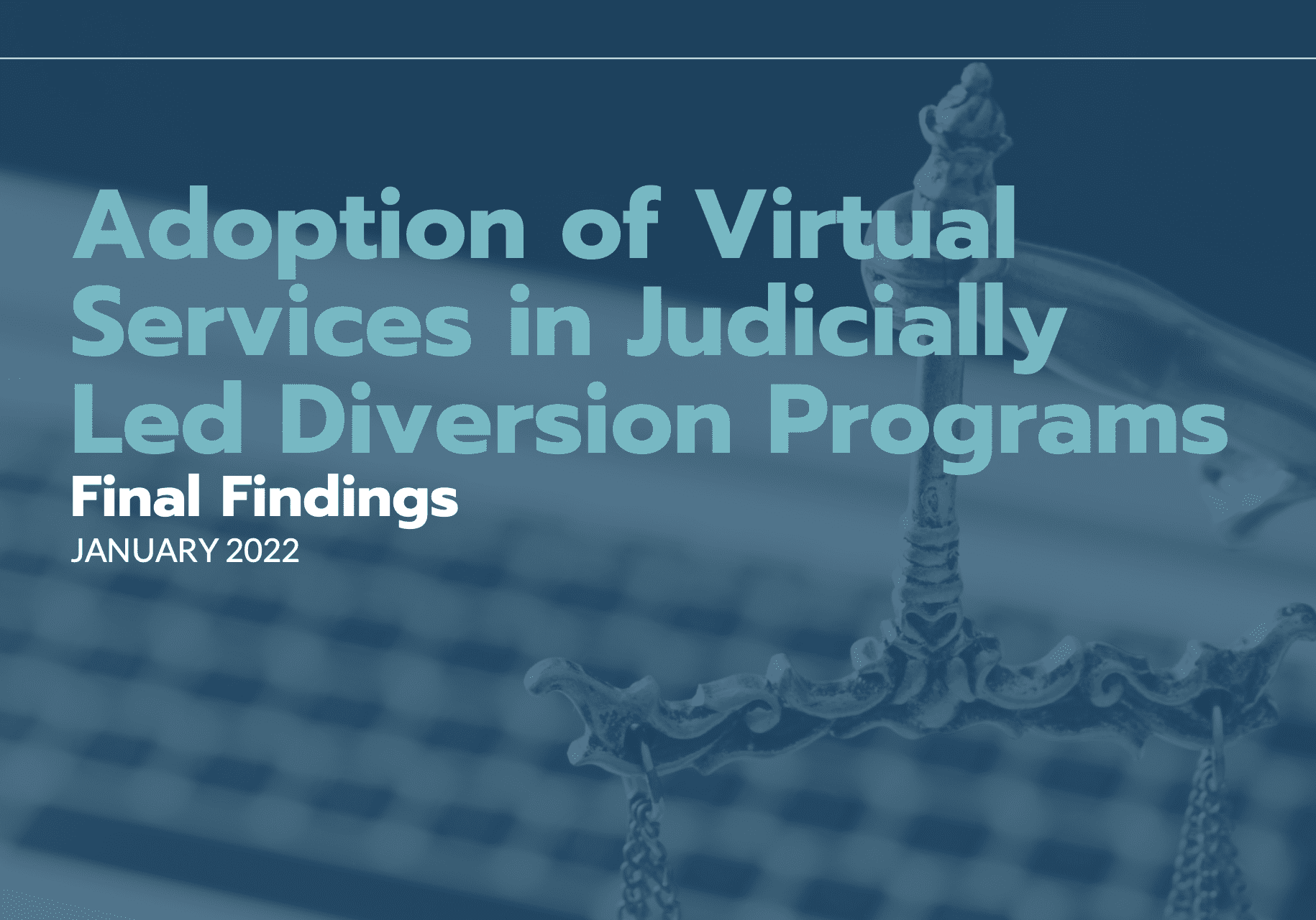Adoption of Virtual Services in Judicially Led Diversion Programs Final Findings
 This report focuses on judicially led diversion programs, including drug courts, opioid courts, and recovery-oriented compliance dockets, which share common features such as early intervention, ongoing supervision, judicial oversight, and a focus on substance use treatment.
This report focuses on judicially led diversion programs, including drug courts, opioid courts, and recovery-oriented compliance dockets, which share common features such as early intervention, ongoing supervision, judicial oversight, and a focus on substance use treatment.
The study, based on a convenience sample, explores how practices were modified in judicially led diversion programs during the pandemic. It highlights the perspectives of various stakeholders, including judges, treatment providers, and probation officers, shedding light on their experiences with virtual services.
Key findings include that a majority of respondents held court hearings and pre-court staffings virtually, with preferences for in-person interactions regarding information exchange, judge-participant connections, and willingness to talk. Additionally, the report reveals insights into treatment practices, such as the prevalence of virtual treatment groups and preferences for in-person sessions.
The study also addresses community-based supervision, indicating changes in supervision levels and impacts on compliance during the pandemic. Respondents identified both facilitators and barriers to the transition to virtual services, emphasizing participant access to technology as a significant challenge. The report underscores the importance of agency support and cooperation from justice agencies for a successful transition.
Download (PDF): Adoption of Virtual Services in Judicially Led Diversion Program Final Findings

